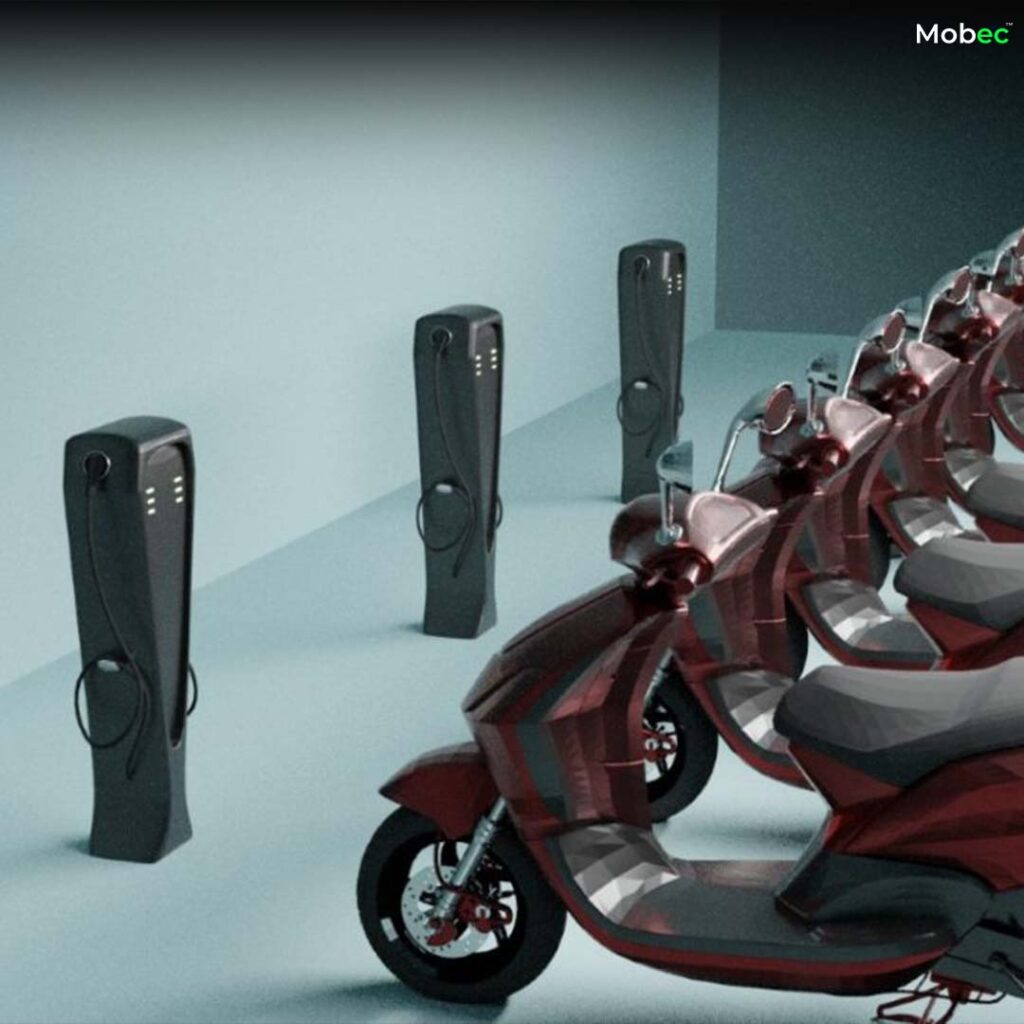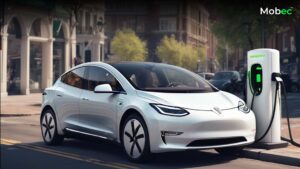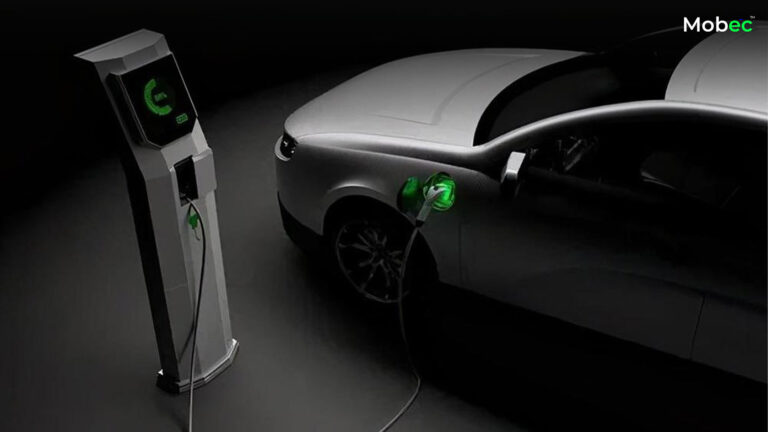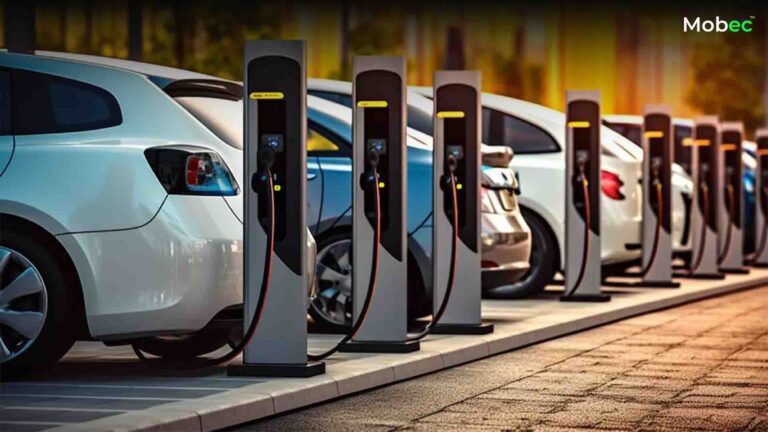In the ever-evolving landscape of electric vehicles (EVs), charging infrastructure plays a pivotal role in shaping the future of sustainable transportation. Mobile Charging as a Service (MCAAS) has emerged as a dynamic solution, introducing innovations and services that redefine the charging experience for EV users. This blog post will delve into the cutting-edge innovations and services offered by MCAAS Electric Vehicle Charging Stations, exploring how they contribute to the growth and widespread adoption of electric vehicles.
Evolution of MCAAS Electric Vehicle Charging Stations

The journey of MCAAS Electric Vehicle Charging Stations is marked by continual innovation and adaptation to the changing needs of the electric vehicle ecosystem. This section will provide a historical overview, tracking the evolution of MCAAS technology and the key milestones that have shaped its development.
Innovations in MCAAS Charging Stations

- Rapid Charging Technology: MCAAS electric vehicle charging stations leverage rapid charging technology to significantly reduce charging times. Innovations in charging speeds contribute to the convenience and practicality of electric vehicles, addressing one of the major concerns of potential adopters.
- Modular and Scalable Design: The modular design of MCAAS electric vehicle charging stations allows for easy installation, relocation, and scalability. This innovation ensures efficient use of resources, making it a cost-effective solution for businesses and municipalities looking to expand their charging infrastructure.
- Advanced User Interfaces: MCAAS providers prioritize user experience by incorporating advanced interfaces into their charging stations. Touchscreen displays, mobile apps, and intuitive interfaces streamline the charging process, providing users with real-time information and control over their charging sessions.
- Energy Storage Integration: Some MCAAS electric vehicle charging stations integrate energy storage solutions, such as batteries, to store excess energy during off-peak hours. This stored energy can then be utilized during periods of high demand, contributing to grid stability and efficiency.
- Renewable Energy Integration: A growing number of MCAAS providers are integrating renewable energy sources into their charging stations. Solar panels and wind turbines, coupled with energy storage systems, make MCAAS infrastructure environmentally sustainable and reduce reliance on the grid.
Services Offered by MCAAS Electric Vehicle Charging Stations

- Payment and Billing Integration: MCAAS stations typically offer seamless payment solutions, allowing users to pay for charging services through various methods, including mobile apps, RFID cards, and contactless payments. This user-friendly approach enhances the accessibility and convenience of electric vehicle charging.
- Remote Monitoring and Management: MCAAS providers leverage technology for remote monitoring and management of charging stations. This not only ensures the efficient operation of the charging network but also allows for proactive maintenance and issue resolution.
- Dynamic Pricing Models: To encourage off-peak charging and optimize energy distribution, MCAAS providers often implement dynamic pricing models. Users may benefit from lower rates during periods of low demand, promoting cost-effective charging.
- Subscription Services: Some MCAAS providers offer subscription-based services, providing users with exclusive benefits, discounts, and priority access to charging stations. These subscription models aim to incentivize long-term commitments to electric vehicle usage.
- Integration with Smart Grids: MCAAS infrastructure is designed to integrate seamlessly with smart grids. This integration allows for better coordination of energy distribution, load balancing, and grid stability, contributing to the overall efficiency of the electrical grid.
Case Studies: Real-World Implementation of MCAAS Innovations and Services
This section will highlight specific case studies and success stories, showcasing how MCAAS Electric Vehicle Charging Stations and their associated innovations and services have been implemented in real-world scenarios. Examining these cases provides valuable insights into the practical impact of MCAAS on electric vehicle adoption.
Future Trends and Anticipated Innovations
As the electric vehicle landscape continues to evolve, this section will explore anticipated future trends and innovations in MCAAS technology. Faster charging speeds, enhanced energy storage solutions, and increased integration with smart city initiatives are among the potential developments that may shape the next phase of MCAAS evolution.
Conclusion
In conclusion, MCAAS Electric Vehicle Charging Stations stand at the forefront of innovation, offering a glimpse into the future of sustainable transportation. The combination of cutting-edge technologies and user-centric services not only addresses the current challenges of electric vehicle adoption but also sets the stage for a more connected, efficient, and environmentally friendly transportation ecosystem. As MCAAS continues to advance, its role in driving the growth of electric vehicles becomes increasingly crucial, paving the way for a cleaner and more sustainable future. Embracing the innovations and services offered by MCAAS Electric Vehicle Charging Stations is not just a step towards a greener tomorrow; it’s a leap into the next era of transportation.
Frequently Asked Questions about MCAAS Electric Vehicle Charging Stations
Frequently Asked Questions about MCAAS Electric Vehicle Charging Stations
Rapid Charging Technology significantly reduces charging times, addressing a major concern of potential adopters.
1. Reduces charging times for enhanced convenience
2. Contributes to the practicality of electric vehicles
3. Addresses a key concern for potential adopters
What advantages does the Modular and Scalable Design of MCAAS Electric Vehicle Charging Stations offer?
The modular design allows for easy installation, relocation, and scalability, ensuring efficient resource utilization.
1. Facilitates easy installation and relocation
2. Promotes scalability for expanding charging infrastructure
3. Ensures cost-effective solutions for businesses and municipalities
How do Advanced User Interfaces enhance the electric vehicle charging experience?
Advanced interfaces, including touchscreen displays and mobile apps, streamline the charging process, providing real-time information and control to users.
1. Prioritizes user experience with intuitive interfaces
2. Offers real-time information during charging sessions
3. Enhances user control over the charging process
In what ways do MCAAS Electric Vehicle Charging Stations contribute to grid stability through Energy Storage Integration?
Energy Storage Integration, such as batteries, stores excess energy during off-peak hours, contributing to grid stability and efficiency.
1. Stores excess energy during off-peak hours
2. Utilizes stored energy during periods of high demand
3. Contributes to overall grid stability and efficiency
How does Renewable Energy Integration make MCAAS infrastructure environmentally sustainable?
Renewable Energy Integration, including solar panels and wind turbines, coupled with energy storage systems, ensures environmental sustainability and reduces reliance on the grid.
1. Integrates solar panels and wind turbines for renewable energy
2. Utilizes energy storage systems for sustainability
3. Reduces reliance on the conventional electrical grid
How does MCAAS simplify the payment process for electric vehicle charging services?
MCAAS stations offer seamless payment solutions through various methods, including mobile apps, RFID cards, and contactless payments.
1. Provides seamless payment solutions for user convenience
2. Accepts various payment methods, including RFID cards and contactless payments
3. Enhances accessibility and convenience of electric vehicle charging
What role does Remote Monitoring and Management play in ensuring efficient charging network operations?
MCAAS providers leverage technology for remote monitoring and management, ensuring efficient operation, proactive maintenance, and issue resolution.
1. Enables remote monitoring for efficient charging network operation
2. Facilitates proactive maintenance and issue resolution
3. Ensures overall efficiency in charging network operations
How do Dynamic Pricing Models in MCAAS encourage cost-effective charging?
Dynamic Pricing Models encourage off-peak charging by implementing lower rates during periods of low demand, optimizing energy distribution.
1. Promotes off-peak charging through dynamic pricing
2. Implements lower rates during periods of low demand
3. Optimizes energy distribution for cost-effective charging
What exclusive benefits do users gain from subscribing to MCAAS services?
Subscription-based services offer users exclusive benefits, discounts, and priority access to charging stations, incentivizing long-term commitments to electric vehicle usage.
1. Provides exclusive benefits and discounts to subscribers
2. Offers priority access to charging stations for subscribers
3. Incentivizes long-term commitments to electric vehicle usage
How does Integration with Smart Grids enhance the efficiency of MCAAS infrastructure?
MCAAS infrastructure seamlessly integrates with smart grids, allowing better coordination of energy distribution, load balancing, and overall grid stability.
1. Facilitates coordination of energy distribution with smart grids
2, Optimizes load balancing for efficient energy use
3. Enhances overall grid stability through seamless integration
Can you provide examples of successful real-world implementations of MCAAS innovations?
Real-world case studies showcase successful implementation of MCAAS Electric Vehicle Charging Stations and their associated innovations and services.
1. Highlights practical impact of MCAAS on electric vehicle adoption
2. Offers insights into successful real-world implementations
3. Demonstrates the effectiveness of MCAAS innovations and services
What developments can be anticipated in the next phase of MCAAS evolution?
Future trends may include faster charging speeds, enhanced energy storage solutions, and increased integration with smart city initiatives, shaping the next phase of MCAAS evolution.
1. Anticipates faster charging speeds in MCAAS technology
2. Foresees enhanced energy storage solutions in the next phase
3. Expects increased integration with smart city initiatives for further innovation






















[…] […]
[…] […]